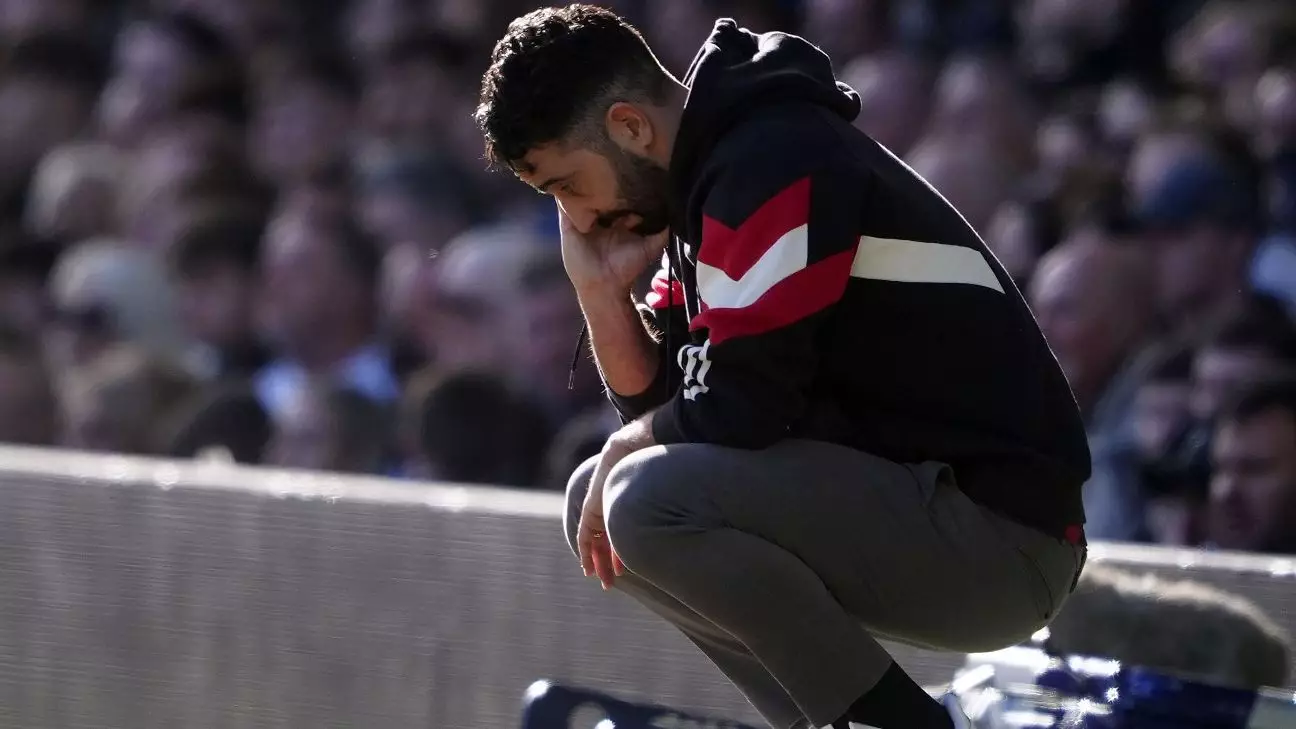Manchester United, under the guidance of head coach Ruben Amorim, continues to face challenges that seem to stem from their slow starts in matches. This concern was glaringly evident during their recent showdown at Goodison Park against Everton, where they found themselves trailing 2-0 by halftime. The goals scored by Beto and Abdoulaye Doucouré highlighted a recurring issue: defensive indecision and lapses that leave the team vulnerable early in games. Such patterns not only demoralize the team but have become alarmingly familiar in their current Premier League campaign.
Despite the difficulty of the first half, United demonstrated resilience in the second half. Bruno Fernandes expertly curled in a free kick, soon followed by Manuel Ugarte claiming his first goal for the club. These contributions rejuvenated the squad’s spirit and showcased their capacity to fight back. However, the team was left with a bitter taste of missed chances and the nagging feeling that the first-half antics cost them a valuable victory against a challenging opponent.
Post-match comments from Amorim suggest that the team is grappling with basic communication and tactical execution during matches. He lamented how players are losing balls without pressure, indicating a lack of awareness and decisiveness on the field. This oversight reflects not only on individual performances but also on a broader systemic issue within the team’s strategy. The current configuration and tactics evidently struggle to enable players to thrive under pressure, leading to a collective failure to express their attacking capabilities and shore up defensive responsibilities.
Amorim’s analysis that United “did not exist in the first half” is particularly telling. This sentiment needs introspection from both coaching staff and players alike, as tackling the core issues of soft defending and indecisive play is essential for reversing their fortunes in the league.
Currently positioned at 15th in the Premier League table, Manchester United’s situation is concerning. With only one win in their last five matches, the urgency for change is undeniable. Amorim has openly acknowledged his lack of immediate solutions, underscoring a strategic pivot that may be needed moving forward. His statement, “We need to survive this season and then think ahead,” reflects a sobering reality rather than an optimistic outlook.
Looking ahead, United’s upcoming challenges against Ipswich Town and then Fulham in the FA Cup offer a chance to regroup. However, how they approach these matches will be crucial. The players must capitalize on these opportunities to build confidence and, ideally, regain a sense of attacking identity that has been sorely lacking. For United to emerge from this tumultuous period, a combination of tactical innovation, enhanced communication, and a renewed competitive spirit will be essential for their revival in the Premier League and beyond.
While the players may demonstrate bursts of brilliance, the inconsistency highlighted by Amorim’s comments reflects a nagging concern that without immediate corrective actions, the club may continue to languish in mediocrity this season.

